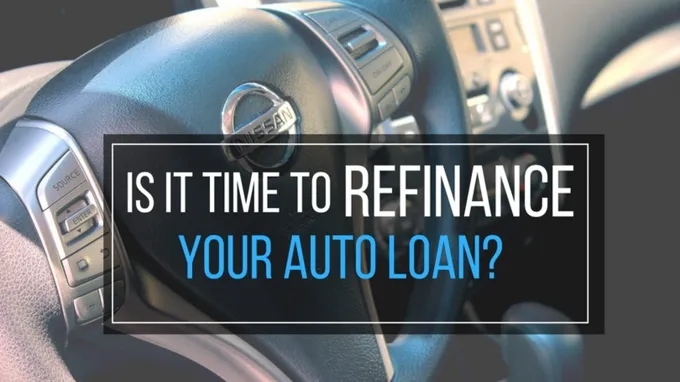Have you been considering refinancing your leased car? It’s a smart move that can help you save lots of money in the long run. Refinancing your leased car means you’re negotiating a better deal, which might reduce your monthly payments and lower the interest rate. However, this process can be a bit daunting, especially if you’re new to the world of car leasing.
But don’t worry! In this blog post, we’ll help you understand the basics of refinancing a leased car, including when it’s a good idea to do it and what factors you should consider before making a decision. So take a deep breath, relax, and read on to learn how you can save some cash and get the best deal on your leased car.
Table of Contents
Understanding Car Lease and Refinancing
If you’re wondering if you can refinance a leased car, the answer is yes, you can. Refinancing a leased car is similar to refinancing a purchased car. In this case, you’re trying to negotiate with the lender to lower your monthly payments by modifying the terms of your lease.
You can either lower your interest rate or extend the terms of your original lease, which can give you more time to pay off your car. However, there are some limitations when it comes to refinancing a leased car. For instance, the lender may charge you some fees to approve your refinance application, and you may have to pay extra for the added features you want.
Additionally, if you have any arrears on your current lease, you may have to pay them off before your application is approved. Hence, it’s best to know and understand the details of refinancing before proceeding with the process.
What is Car Leasing?
Car leasing is an arrangement where the lessee pays for the use of a vehicle for a set amount of time and miles. This type of arrangement is ideal for individuals who don’t want to commit to purchasing a car, or for those who prefer to upgrade their vehicle every few years. Car leases usually come with lower monthly payments than car loans, and they often include maintenance and servicing.
Refinancing a car lease is also an option for those who want to lower their monthly payments or change the terms of their lease. In essence, car leasing can be an excellent way to drive a vehicle without worrying about ownership, depreciation, and handling the eventual resale.

What is Refinancing?
Refinancing can be a useful tool in the world of car leasing. It involves taking out a new loan to pay off the existing car lease, allowing you to renegotiate the terms of your lease and potentially lower your monthly payments. This is particularly beneficial if your credit score has improved since you first took out your lease, as you may qualify for better interest rates and therefore more favorable terms.
Refinancing can also give you the opportunity to change the length of your lease, so you can ensure it fits your current needs and budget. However, it’s important to note that refinancing may not always be the best option, as there are certain fees and penalties associated with ending a lease early. It’s always wise to weigh the potential benefits against the costs before making a decision.
Overall, refinancing can be an effective way to save money and make your car lease work better for you.
Can You Refinance a Leased Car?
If you find yourself in the situation of a lease that is becoming too much to manage, refinancing may be a good option for you. While it is not always the easiest thing to do, refinancing a leased car may save you money in the long run. Not all leasing companies will allow refinancing, so it is important to check with them first.
If they do, the process is similar to refinancing any other type of loan. You will need to provide your credit score, the amount owed on the current lease, and any other pertinent information that the leasing company needs. Keep in mind that refinancing may extend the length of your lease, which means you may end up paying more in the long run.
However, it may be worth it if it means lowering your monthly payments and making the financial burden more manageable. So, can you refinance a leased car? The answer is yes, but it is important to weigh the pros and cons before making any decisions.
Factors to Consider When Refinancing a Leased Car
Refinancing a leased car can be a great way to lower your monthly payments, reduce interest rates, or adjust the terms of your lease. However, it’s not always a straightforward process. Before you decide to refinance your leased car, there are a few important factors to consider.
First, check to see if your lease agreement allows for refinancing. Some lease agreements prohibit this, or may charge additional fees for early termination. Additionally, consider your credit score and current financial situation.
Refinancing may improve your credit score, but if you’re struggling financially, it may not be the best option. Finally, think about the overall cost of refinancing. While lower monthly payments may seem appealing, extending your lease term could end up costing you more in the long run.
With careful consideration and a clear understanding of your lease agreement, refinancing a leased car can be a smart financial decision.
The Pros and Cons of Refinancing a Leased Car
Refinancing a leased car can be a way to save money and improve your financial situation, but it’s important to carefully consider the pros and cons before making a decision. One of the main benefits of refinancing a leased car is the potential to lower your monthly payments. If your credit score has improved since you first leased the car or interest rates have gone down, you may be able to secure more favorable terms.
On the other hand, there are some downsides to refinancing a leased car. For one, you’ll need to pay attention to the terms of your lease agreement and make sure that refinancing doesn’t violate any of them. Additionally, refinancing may extend the length of your lease, which could mean paying more money in the long run.
Ultimately, whether refinancing a leased car is a smart choice depends on your individual circumstances and goals. If you’re considering refinancing, it’s wise to do your research, shop around for the best rates, and consult with a financial advisor or leasing specialist.
Refinancing a Leased Car: How Does it Work?
If you’re considering refinancing your leased car, the good news is that it is possible to do so. Most car leases come with the option to buy out the vehicle at the end of the lease term, which means you can buy it and refinance the car loan. However, there are a few important things to keep in mind before making this decision.
First, you’ll need to check with your leasing company to see if they allow buyouts and refinancing. Second, make sure you can get a better interest rate and terms with refinancing than what you currently have. It’s also a good idea to do your research and compare rates from different lenders to ensure you’re getting the best deal.
Refinancing a leased car can be a smart financial move if you’re able to lower your monthly payments or get a better deal on your interest rate and terms. But keep in mind, refinancing may also come with fees and charges, so be sure to read the fine print and weigh your options before making a decision.
When Refinancing a Leased Car Makes Sense
Whether or not you can refinance a leased car depends on various factors, such as the terms of your lease agreement and the lender’s policies. Generally, you can refinance a leased car if you want to lower your monthly payments or reduce the interest rate. Refinancing allows you to transfer your existing lease to a new lender or extend your lease term, giving you more flexibility in terms of payment options.
However, before refinancing, it’s crucial to consider the fees and charges associated with the process, such as application fees, origination fees, and prepayment penalties. Therefore, it’s advisable to thoroughly research and compare different refinancing offers to ensure that you choose the option that suits your needs and circumstances. By doing so, you may end up with lower monthly payments, reduced interest rates, and potentially better terms and conditions.
Lowering Monthly Payments
Refinancing a leased car can be a great way to lower your monthly payments and save money in the long run. This strategy is particularly beneficial if interest rates have dropped significantly since you first signed the lease agreement. Refinancing allows you to renegotiate the terms of your lease, securing a lower interest rate and potentially extending the term of your lease.
This can lead to significant savings each month, which can be used to pay off other debts or to save for a rainy day. However, it’s important to consider the costs associated with refinancing, including any fees or penalties that may be incurred. Additionally, it’s important to ensure that you’re not extending the term of your lease beyond its useful life, as this can result in additional costs down the road.
Overall, refinancing can be a smart move for anyone looking to lower their monthly payments and save money on their leased vehicle.
Lowering Interest Rates
Lowering interest rates can be a great way to save money on a leased car. Refinancing your leased vehicle can be a smart move as it can help to lower your monthly payments, reduce the amount of interest you pay over the course of the lease, and potentially allow you to keep your car for longer. However, it’s important to understand the terms of your lease agreement and compare the costs of refinancing with the potential benefits.
If you’re considering refinancing, make sure you understand the fees involved and work with a reputable lender. By taking the time to research and compare your options, you may be able to lower your interest rates and save money over the life of your lease.
The Bottom Line
If you’re wondering whether you can refinance a leased car, the answer is no. Unlike owning a car, leasing it means that you don’t technically own the vehicle. Instead, you’re making payments on the use of the car for a set period of time.
Because of this, you can’t refinance a leased car in the same way you would a purchased car. However, it’s not all bad news. If you’re looking to save money on your monthly lease payments, you can consider a lease buyout.
This involves purchasing the car outright at the end of the lease term and financing it through a traditional auto loan. This can often result in lower interest rates and payments than the original lease agreement. It’s important to crunch the numbers and make sure it’s financially feasible for you, but a lease buyout can be a good option for those looking to save money and keep their leased car for the long haul.
Conclusion
In conclusion, while refinancing a leased car may seem like a tricky proposition, it’s important to remember that with some careful research and consideration, it can be a smart financial move. So don’t be afraid to take a closer look at your lease terms, shop around for the best rates, and explore your options for refinancing. After all, a little wit and cleverness in managing your finances can go a long way in securing your financial future!”
FAQs
What is car refinancing?
Car refinancing is the process of replacing your current car loan with a new loan that has better terms and interest rates, which can help you lower your monthly payments or pay off your loan sooner.
Can you refinance a leased car?
No, you cannot refinance a leased car. A lease is a form of rental agreement, and the terms are set for the duration of the lease. However, there are options to buy out your lease or transfer it to someone else.
Can you refinance a car loan with bad credit?
It may be possible to refinance a car loan with bad credit, but it depends on your individual situation. You may need to provide additional documentation or have a co-signer to qualify for refinancing with a lower interest rate.
What are the benefits of refinancing a car loan?
Refinancing a car loan can have several benefits, such as lowering your monthly payments, reducing your interest rate, or paying off your loan sooner. It can also help you build better credit if you make your payments on time.
How long does it take to refinance a car loan?
The time it takes to refinance a car loan can vary depending on the lender and your individual situation. It can take from a few days to a few weeks to complete the process and receive your new loan.
Can you refinance a car loan from a different lender?
Yes, you can refinance a car loan from a different lender. In fact, this is a common reason for refinancing, as borrowers may find a better interest rate or terms from a different lender.
Are there any fees associated with refinancing a car loan?
Yes, there may be fees associated with refinancing a car loan, such as an application fee, title transfer fee, or prepayment penalty. It’s important to review and compare all fees before deciding to refinance.



